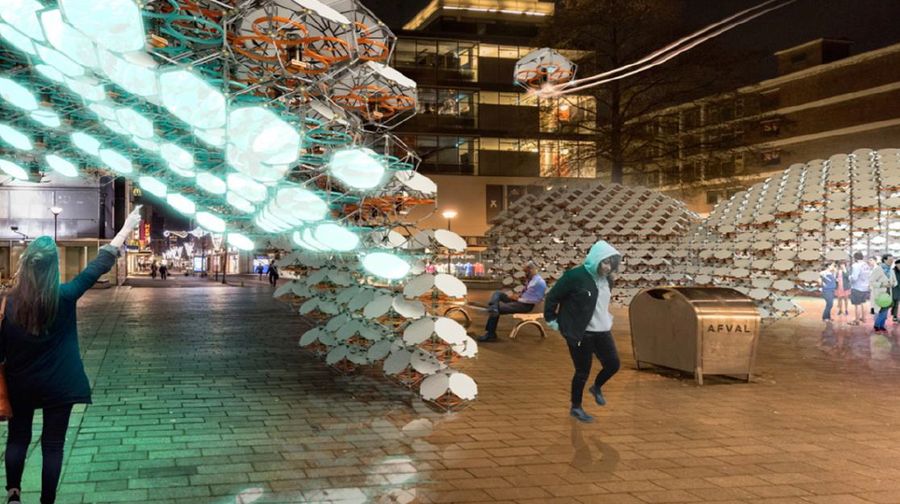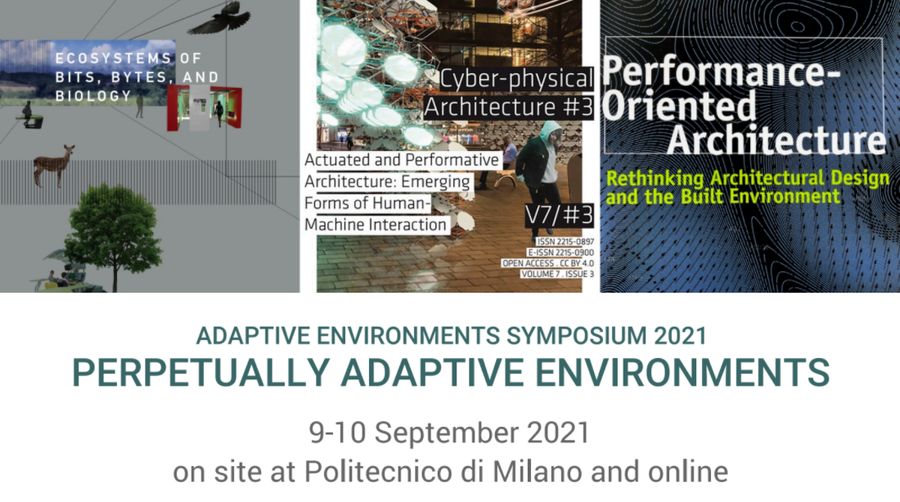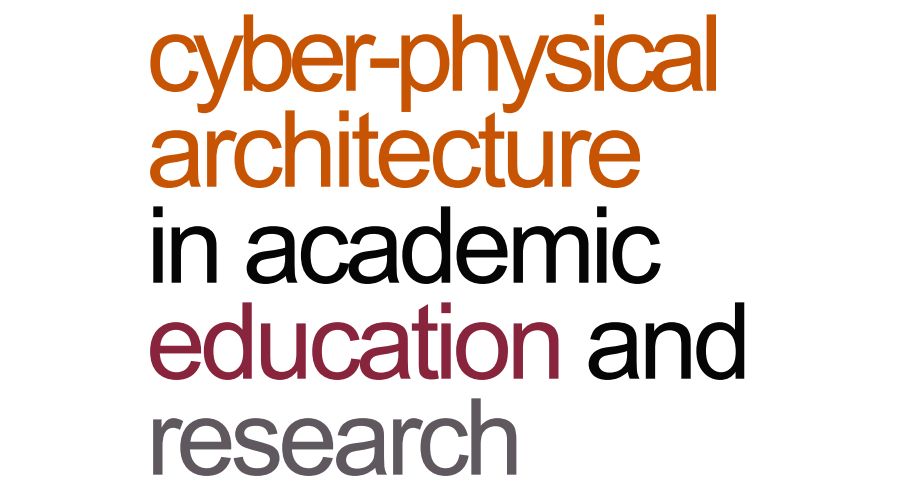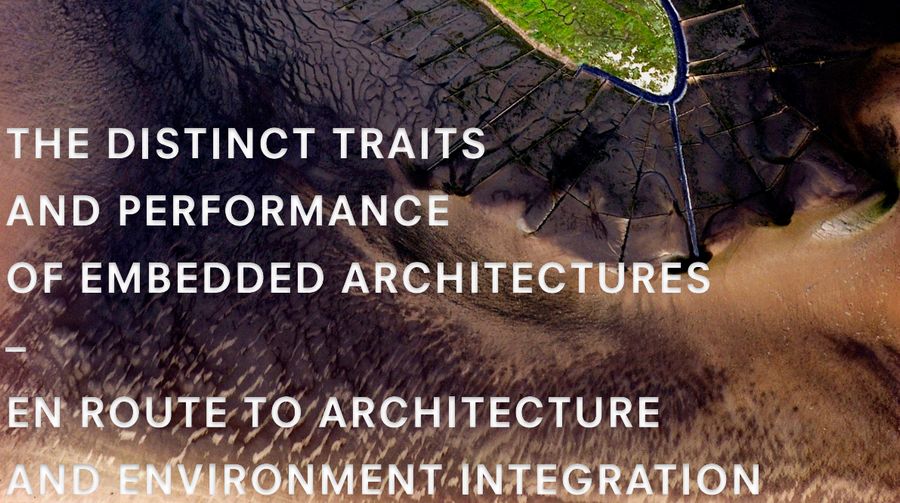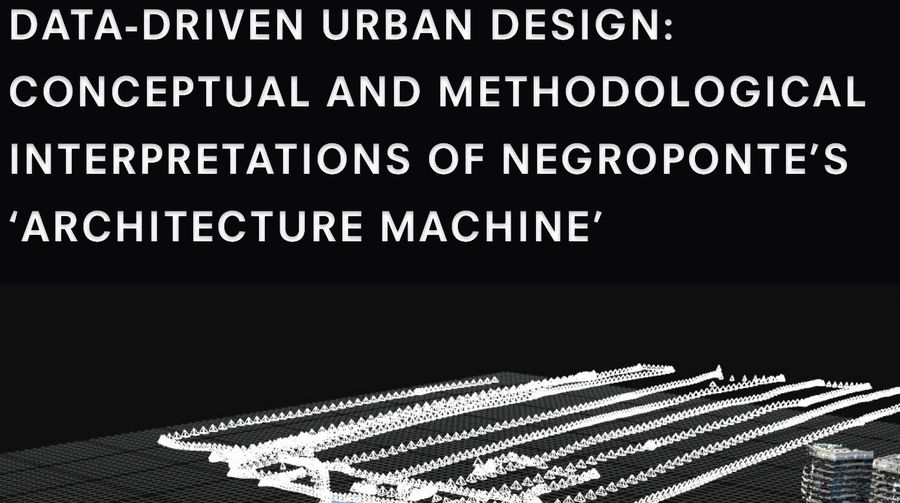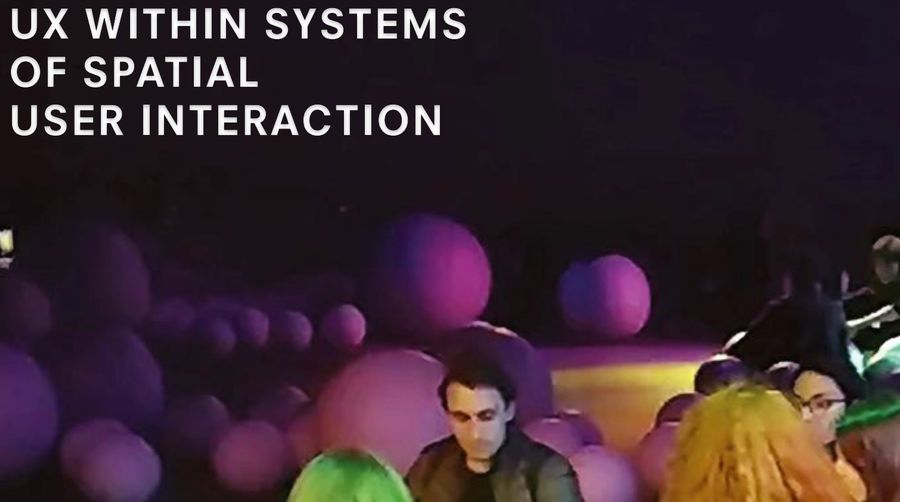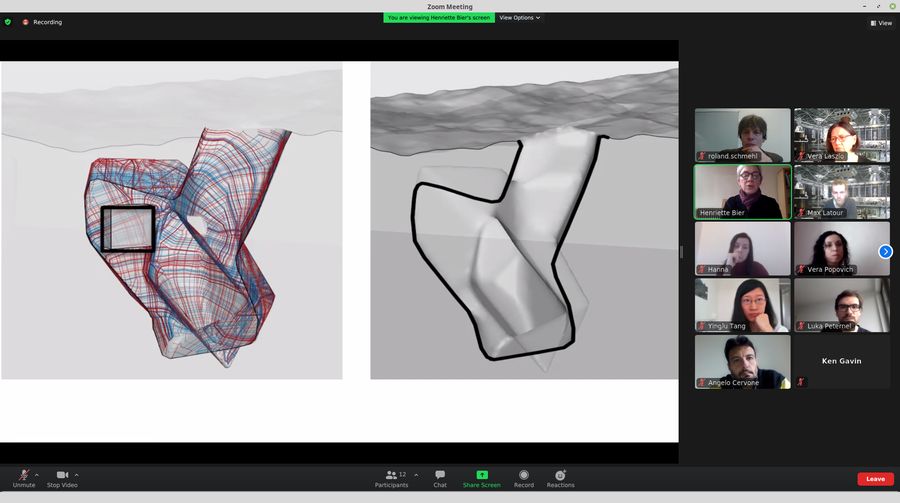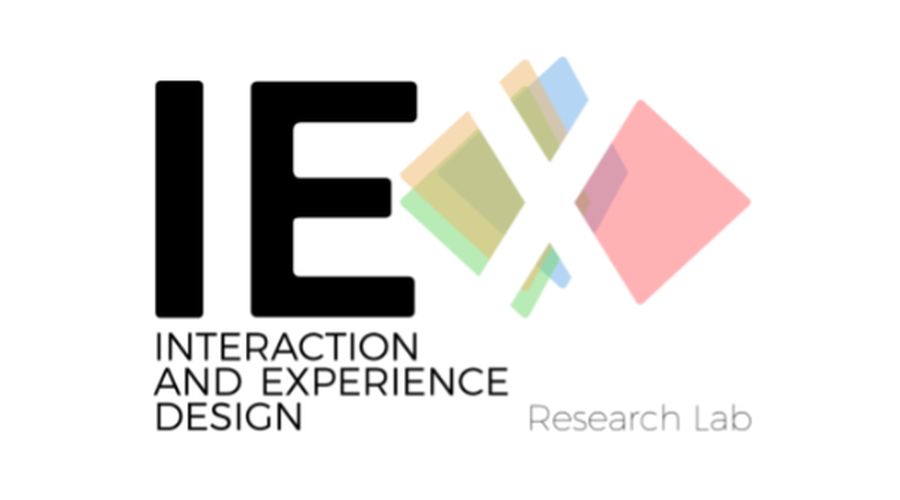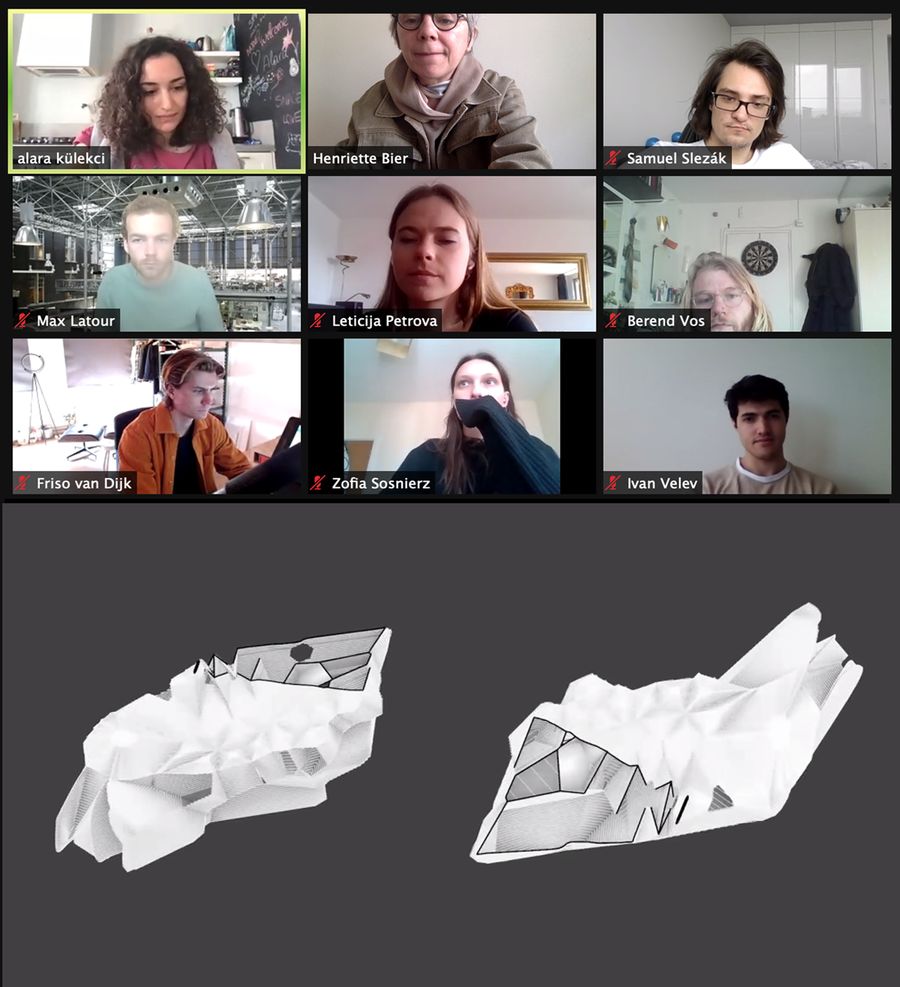
Month: April 2021
Henriette Bier and the Robotic Building lab at TU Delft organise a symposium on ‘Perpetual Adaptation’ together with PoliMi, TU Vienna, and Cornell.
ORGANISERS
Members of Adaptive Environments network (http://adaptive-environments.eu/):
Henriette Bier, TU Delft; Margherita Pillan, Politecnico di Milano; Michael Hensel, TU Wien;
Keith Evan Green, Cornell
THEMES
Human and non-human agency
Artificial Intelligence (AI) and robotics in the built environment
Environmental informatics
ABSTRACT
Perpetually adaptive environments define a new research frontier at the interface of architecture and design,
computing, robotics, and behavioral sciences. Such adaptive environments are responding in real-time to
human needs and opportunities, environmental changes, and other internal and external input. Their design
as bio-cyber-physical systems requires integration of physical and virtual architectures with digital systems
and social organizations.
Previous research in the emerging research domain of adaptive environments has investigated Actuated and
Performative Architecture: Emerging Forms of Human-Machine Interaction (Pillan et al., 2020),
Apparatisation in & of Architecture (Lee and Bier, 2019), Robotic Building (Bier, 2018; 2017), and Architectural
Robotics (Green, 2016).
This Adaptive Environments symposium turns to questions of (1) artificial intelligence and robotics
embedded in the built environment; (2) perceptions of human and non-human agency in such environments;
and (3) environmental informatics.
Of particular interest to the symposium include but are not limited to topics such as:
- Interdisciplinary approaches for computational, multi-domain and trans-scalar modelling that integrate
planning and design scales from the territorial scale to the building scale. - Case studies for urban and natural environments requiring, on the one hand, computational modelling
and high precision monitoring strategies and on the other hand robotics for the production and
operation of such environments. In this context, sensor-actuators are introduced to facilitate
communication and exchange between artificial and natural agents by creating bio-cyber-physical
feedback loops. - Speculative investigations into how Artificial Intelligence (AI) and robotics bring built environments “to
life”.
Authors of accepted papers will be encouraged to develop their papers as chapters for a volume In the Spring
Book Series, Adaptive Environments (https://link.springer.com/bookseries/15693) edited by the symposium
organizers.
PROGRAM
Activities and presentations will be blended combining online and off-line means. Presentations are
scheduled to take place 20 minutes followed by 10 minutes Q&A.
PRESENTATIONS
9th Sept. 2021
Join Zoom Meeting
https://us02web.zoom.us/j/86856582641?pwd=ei8vbWhQbzVEWWhaSERQNzl3N3RJQT09
Meeting ID: 868 5658 2641
Passcode: 895749
14:00-14:10h Intro and moderation (Henriette Bier, Margherita Pillan and Michael Hensel)
14:10 14:40h Jeroen van Ameijde (CUHK): Data-driven Urban Design
14:40-15:10h Katia Perini (UniGe) and Ata Chockhachian (TUM): Informed Urban Environments
15:10-15:40h Umberto Fugiglando (MIT): The City that Senses and Responds: How Data Can Drive
Interdisciplinary Connections to Foster Ecological Solutions
15:40-16:10h Coffee break
16:10- 16:30h Sebastian Vehlken (Leuphana University): Dual Environmentality. Towards a Media Ecology of
Oceanic Habitats
16:30-17:00h Verena Vogler (Bauhaus University, Weimar; McNeel): Designing Artificial Coral Reefs
17:00-17:30h Pierre Oskam and Henriette Bier (TUD): Bio-cyber–physical Planetoids
17:30-18:00h Erica Parisi (UniFi) and Jakub Tyc (TU Wien): Data acquisition & Data integration: The Case of
High-altitude Viticulture in Lamole
10th Sept. 2021
Join Zoom Meeting
https://us02web.zoom.us/j/89956384698?pwd=Wm9HcUtyeWpLZHpObGRqY1g0MFRMZz09
Meeting ID: 899 5638 4698
Passcode: 125708
14:00-14:10h Intro and moderation (Henriette Bier, Margherita Pillan and Keith Green)
14:10 14:40h Cédric Pruski (LIST) and Defne Sunguroglu Hensel (TUM): Data & Information Modelling
14:40-15:10h Georg Vrachliotis (TUD): Re-thinking “The Responsive House”, 1972
15:10-15:40h Margherita Pillan and Andrea Bonarini (Polimi): Inquiring the impact of AI on the design of
responsive and interactive spaces
15:40- 16:10h Coffee break
16:10-16:40h Hamed Alavi (UniFri): Indoor Air Quality Forecast in Shared Spaces– Predictive Models and
Adaptive Design Proposals
16:40-17:10h Ni Zhang (Cornell): SORTing Things Out: A Multi-Agent, Wall Climbing Organizer-and-Delivery
System for Living Spaces
17:10- 17:30h Closing of symposium
17:30-18:30h Restricted meeting of AE network
26th of May 2021, Henriette Bier lectures online as part of the course Architecture and Composition at the University of Catania.
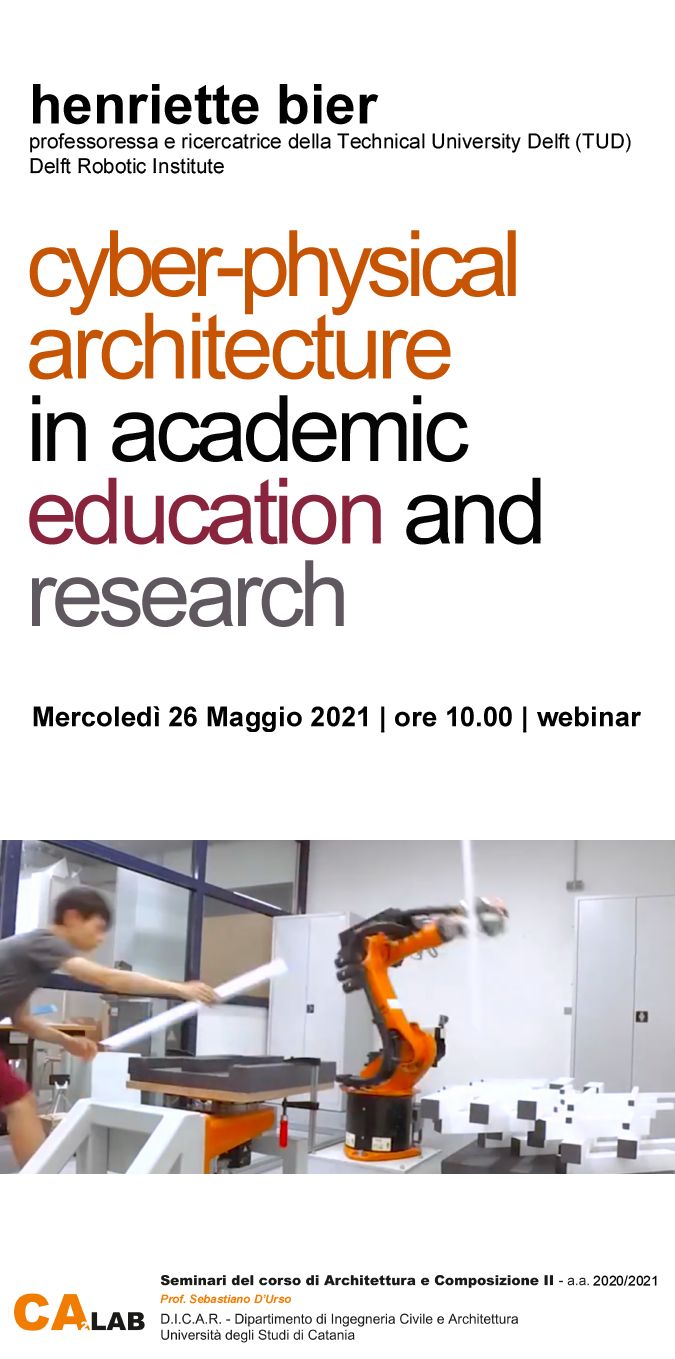
12th May, 13:00h, The Distinct Traits and Performance of Embedded Architectures – En Route to Architecture and Environment Integration
Zoom: https://tudelft.zoom.us/j/97586666953
Michael Hensel, TU Wien
Bio:
Univ. Prof. Michael U. Hensel PhD is a registered architect, partner in the practice OCEAN Architecture | Environment, and founding member of the experimental design network OCEAN net. He is a founding and steering board member of the LamoLab Research Center and series editor of the Springer Nature book series Designing Environments. He heads the research department for Digital Architecture and Planning at Vienna University of Technology, where is board and faculty member at the interfaculty Center for Geometry and Computational Design and member of the Center for Computational Complex Systems. His work is located at the intersection between architecture, landscape architecture, urban design, ecology, sustainable development, and data- and computer-science especially in areas of higher complexity. He taught at notable schools and universities including the Architectural Association School of Architecture in London, Berlage Institute Amsterdam & Rotterdam, Technical University in Munich, Rice University in Houston and University of Technology Sydney. He was founding and acting director of the Research Centre for Architecture and Tectonics in Oslo, innovation fellow at the University of Sydney, honorary fellow of the Institute of Advanced Studies at the Technical University in Munich, and senior resident at Polytechnic University of Milan.
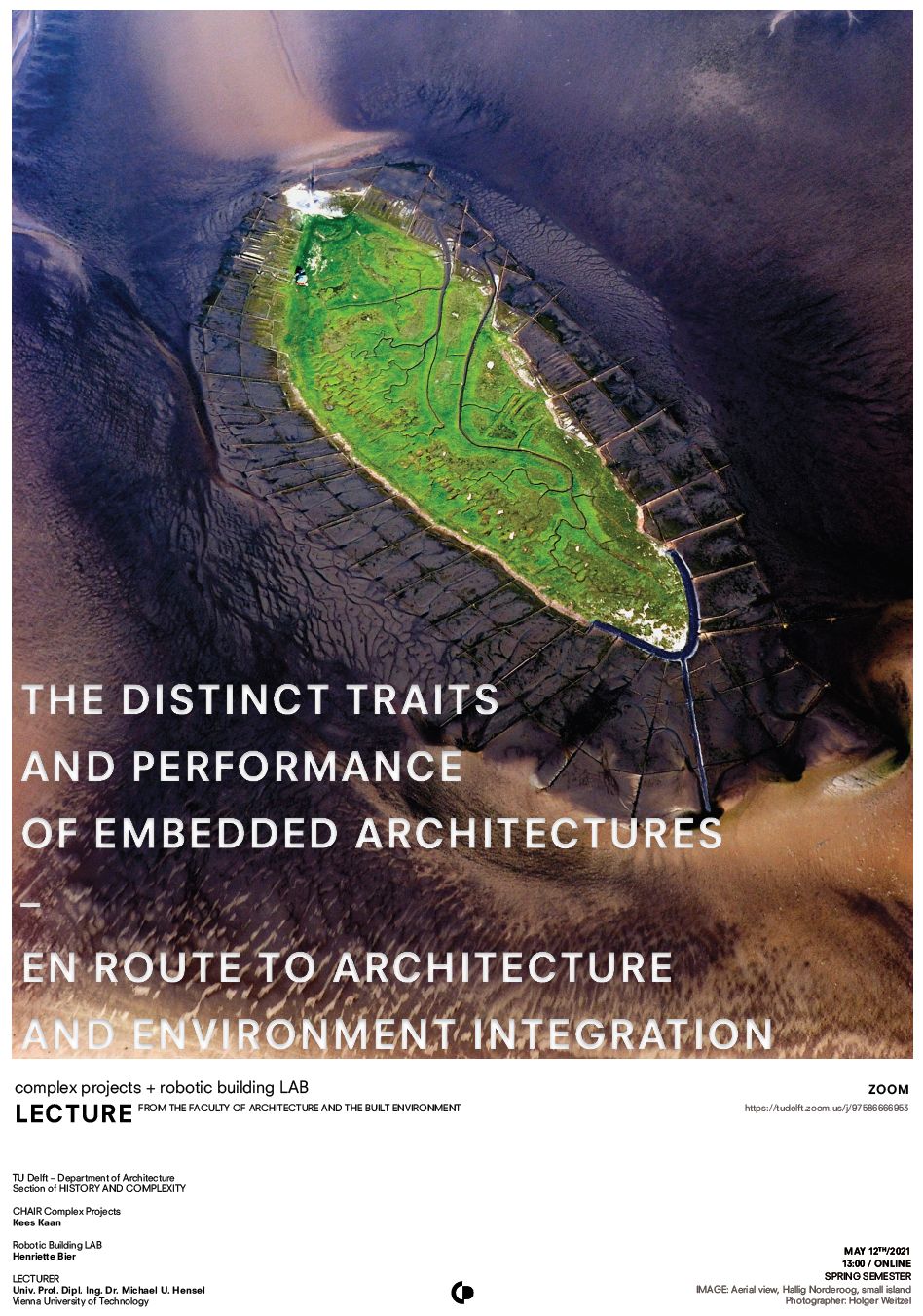
28th April, 13:00h, Data-driven Urban Design: Conceptual and Methodological Interpretations of Negroponte’s ‘Architecture Machine’
Zoom: https://tudelft.zoom.us/j/97586666953
Jeroen van Ameijde, The Chinese University of Hong Kong
Bio:
Jeroen van Ameijde is Assistant Professor at the School of Architecture, the Chinese University of Hong Kong, teaching and conducting research in architecture, urban analytics and data-driven design. Before joining CUHK, he taught at the Architectural Association in London, as well as at The Bartlett, UCL, and the University of Pennsylvania. He has over ten years of experience as practicing architect and urban designer, including as a partner and director at Urban Systems Office, where he coordinated the design and development of several large-scale residential, mixed-use and master planning projects.
Jeroen’s research interests focus on the intersection between urban studies and urban design, and how the analysis and planning of social, cultural and economic activities can be guided through computational methods for data management and design testing. He explores generative design methodologies to test programmatically complex urban and architectural proposals, as well as urban modelling techniques to speculate on processes of future urban development. He has published and lectured internationally and has taught or coordinated workshops in collaboration with numerous universities. His recent research work includes studies into urban regeneration in Shenzhen and Hong Kong, as well as environment-behaviour, estate planning and placemaking studies related to Hong Kong’s public housing.
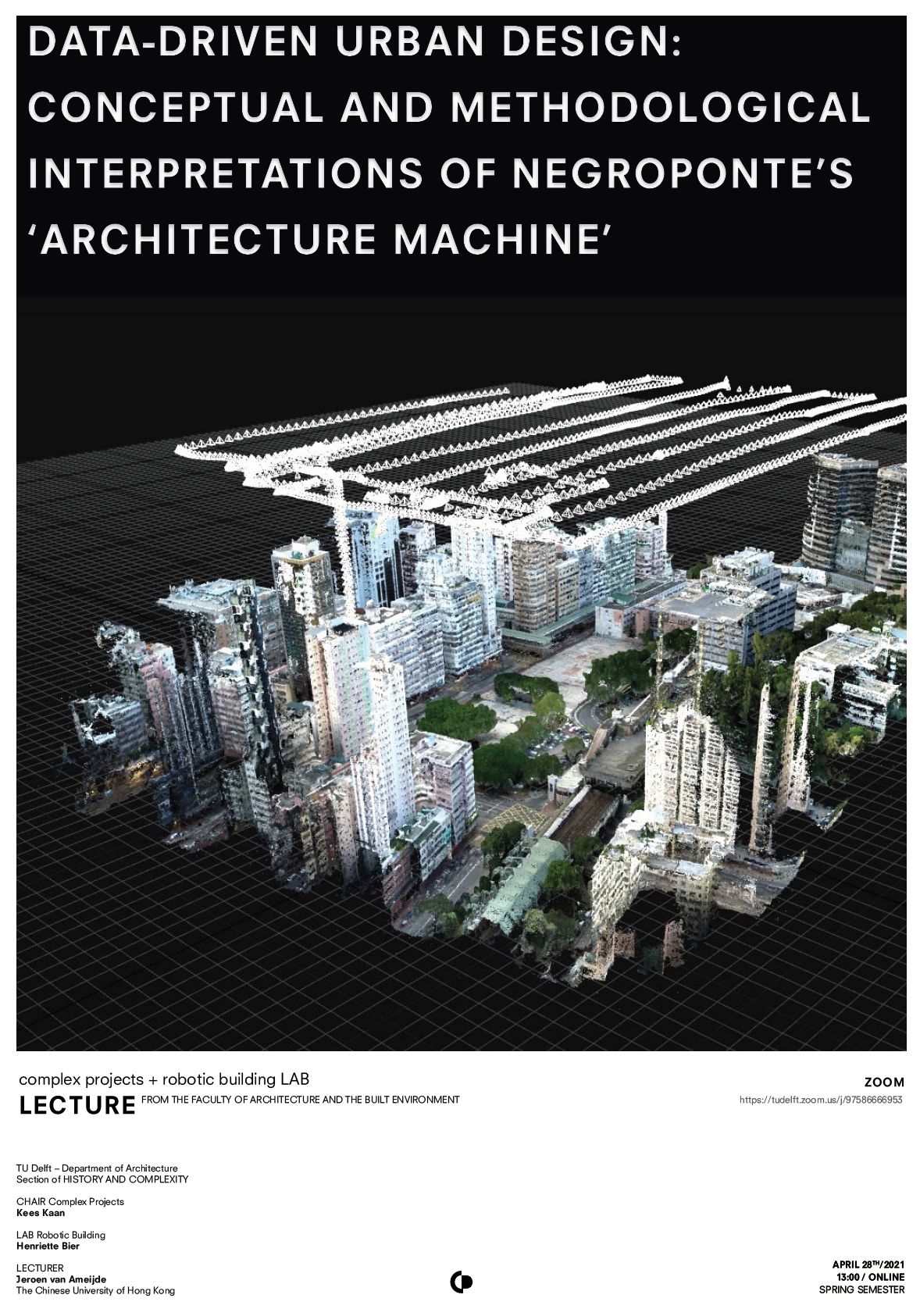
21st April, 13:00h, UX within Systems of Spatial User Interaction
Zoom: https://tudelft.zoom.us/j/97586666953
Milica Pavlovic, KU Leuven
Bio:
Milica Pavlovic is a postdoctoral research associate at the eMedia Lab, working on design research projects for tangible and embodied interactions for various applications. Milica holds a PhD degree in Interaction and Experience Design from Polytechnic University of Milan, where she worked as a research fellow and teaching assistant. She developed her doctorate research in collaboration with the Joint Open Lab Digital Life and Services Innovation Department from TIM S.p.A.
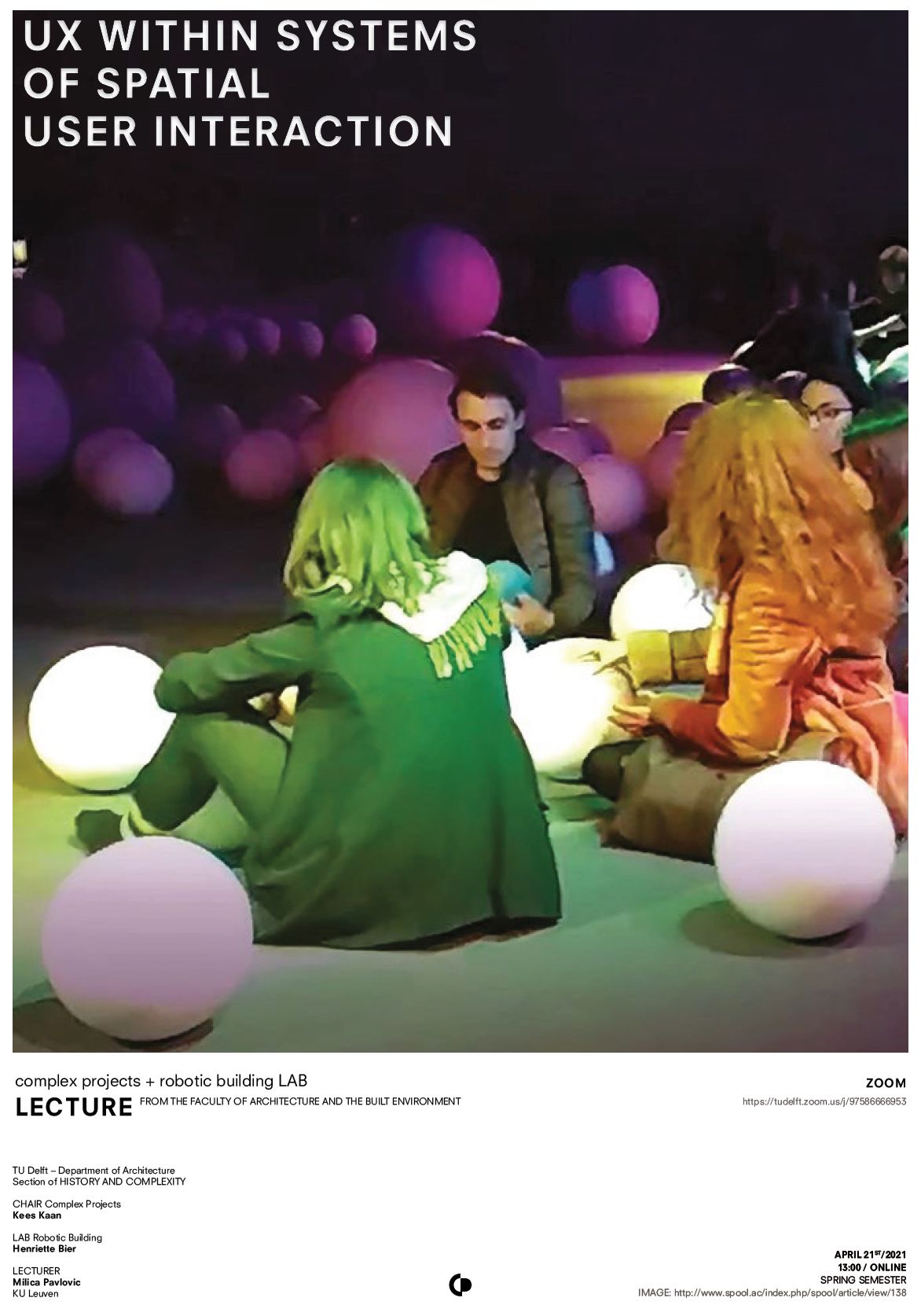
Kick-off meeting on 7th April marked the official start of the Rhizome project to be implemented with partners from TUD, ESA, and Vertico.
In order for off-Earth top surface structures built from regolith to protect astronauts from radiation, they need to be several meters thick. TUD proposes to excavate into the ground to create subsurface habitats. By excavating not only natural protection from radiation can be achieved but also thermal insulation because the temperature is more stable underground. At the same time through excavation valuable resources can be mined for in situ resource utilization (ISRU). The idea is that a swarm of autonomous mobile robots developed at ESA and/or TUD excavate the ground in a sloped downwards spiral movement.

